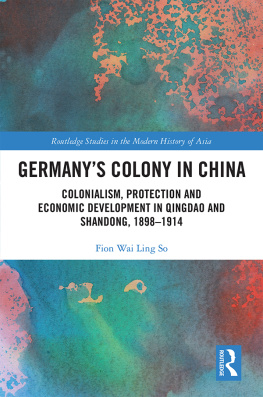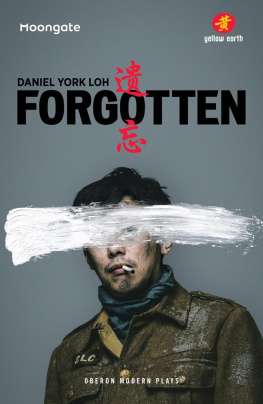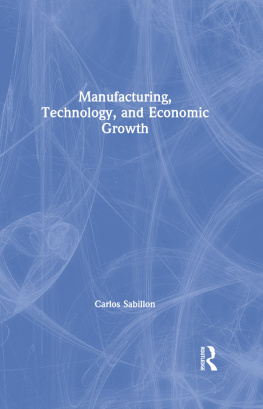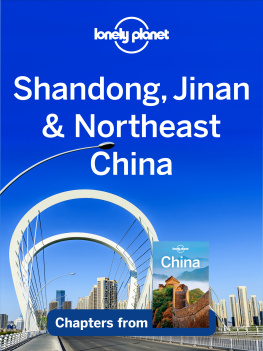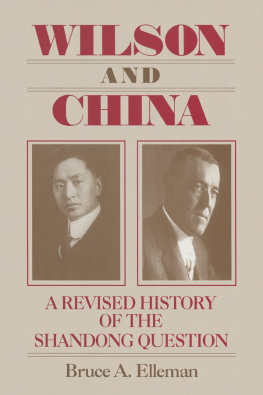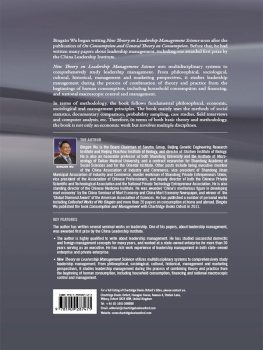Germanys Colony in China
This book explores the economic development of northern Chinese city of Qingdao, which was held by Germany as a colony from 1898 to 1914. It focuses especially on the economic policies of the German colonial government and of the provincial government of the neighbouring Chinese province of Shandong, considering amongst other issues free trade and protection, the impact of the Gold Standard and assistance given to particular companies. The book shows how the Qingdao and Shandong economies fitted into overall East Asian and global trade patterns and how during this period these economies became more fully integrated into the world economy. The book concludes by discussing how although there was a great deal of co-operation between the Qingdao and Shandong governments, there were also growing tensions.
Fion Wai Ling So completed her doctorate at the School of Oriental and African Studies, University of London.
Routledge Advances in International Relations and Global Politics
Southeast Asian Education in Modern History
Schools, Manipulation, and Contest
Edited by Pia Jolliffe and Thomas Richard Bruce
The Colonisation and Settlement of Taiwan, 16841945
Land Tenure, Law and Qing and Japanese Policies
Ruiping Ye
Newspapers and the Journalistic Public in Republican China
1917 as a Significant Year of Journalism
Qiliang He
The United States and Southeast Asian Regionalism
Collective Security and Economic Development, 194575
Sue Thompson
Japans New Deal for China
Propaganda Aimed at Americans before Pearl Harbor
June Grasso
Voices of the Korean Minority in Postwar Japan
Histories Against the Grain
Erik Ropers
Germanys Colony in China
Colonialism, Protection and Economic Development in Qingdao and Shandong, 18981914
Fion Wai Ling So
For a full list of available titles please visit: https://www.routledge.com/Routledge-Studies-in-the-Modern-History-of-Asia/book-series/MODHISTASIA
First published 2019
by Routledge
2 Park Square, Milton Park, Abingdon, Oxon OX14 4RN
and by Routledge
52 Vanderbilt Avenue, New York, NY 10017
Routledge is an imprint of the Taylor & Francis Group, an informa business
2019 Fion Wai Ling So
The right of Fion Wai Ling So to be identified as author of this work has been asserted by her in accordance with sections 77 and 78 of the Copyright, Designs and Patents Act 1988.
All rights reserved. No part of this book may be reprinted or reproduced or utilised in any form or by any electronic, mechanical, or other means, now known or hereafter invented, including photocopying and recording, or in any information storage or retrieval system, without permission in writing from the publishers.
Trademark notice: Product or corporate names may be trademarks or registered trademarks, and are used only for identification and explanation without intent to infringe.
British Library Cataloguing-in-Publication Data
A catalogue record for this book is available from the British Library
Library of Congress Cataloging-in-Publication Data
A catalog record has been requested for this book
ISBN: 978-1-138-95203-4 (hbk)
ISBN: 978-1-315-66774-4 (ebk)
Typeset in Times New Roman
by codeMantra
Figures
Illustrations
Tables
This book came into being, initially as being part of my PhD dissertation, Navigating Protectionism Diederichsen, Jebsen & Company in German Qingdao and the World, 18981907. It was completed at the School of Oriental and African Studies (SOAS), University of London. The first person whom I would like to thank is my supervisor in SOAS, Andrea Janku, who has provided me with the most support and encouragement over the period during which this research was undertaken. I must also thank my examiners, Klaus Mhlhahn and Debin Ma, whose comments and feedback contributed much to the revision of this manuscript. Completing this research would not have been possible without funding from Fritz Thyssen Stiftung, for my research stay in Hong Kong, London, Berlin and Kiel, all proving crucial to the completion of this research.
I have also received enormous support from the faculty members at the History Department of SOAS and other academic peers including William Gervase Clarence-Smith, Lar Laamann, Gary Tiedemann, Sebastian Conrad, Angus Lockyer, Han Lifeng, Li Yi, Martyn Smith, Matthew Phillips, Philipp Wirtz, Niki Alsford, Antonio Santos, Angela Chiu, Jiao Lin, Paul Wenham and Ian Maston. During the study period, my friends and colleagues all contributed to my unforgetand enjoyable experience with their enthusiastic support and encouragement. I must express my great appreciation to David Macri, who have read my entire manuscript and given advice and suggestions. More importantly, I have received warm support and encouragement from Robert Bickers and Peter Sowden, without whom this manuscript would not have been published.
This research, as it started, primarily focused on the history of Diederichsen, Jebsen & Company in Qingdao. As the research develops, I am fascinated by how the company development helps understand the contestation over the laissez-faire and government regulations in the economy. Therefore, I sincerely thank the support of Hans Michael Jebsen, Chairman of Jebsen & Co. Ltd. of Hong Kong for authorising my access to the Jebsen & Jessen Historical Archives (JJHA). Reading the Jebsen company papers at the JJHA inspires new perspectives and angles in researching the history of German Qingdao and Sino-German economic relations. Further thanks must go to the Landsarkivet for Snderjylland (Aabenraa) whose support to identify and locate the company files is of great help for this research.
In addition, I would like to acknowledge the help offered by the staffs of all the archives and libraries where I visited for this research. They include the SOAS Library and Archives, the British Library, the German Historical Institutes, the National Archives (UK), Bundesarchiv Berlin, Bundes-Militrarchiv Freiburg, Bayerische Staatsbibliothek, National Library of Scotland, Manuscripts Division, Politisches Archiv des Auswrtigen Amts, Staatsarchiv Hamburg, Qingdao Municipal Archives and the Staatsbibliothek zu Berlin.
Finally, I must thank my beloved mother and siblings Fiona and Zenith for their continuous support throughout the past few years of research.
The early twentieth century witnessed a world of change rooted in the context of two conflicting economic doctrines; the laissez-faire system (favouring trade expansion) contrasted directly with state interventionism (e.g. agricultural protectionism). During this period, economic activities, especially in the rural and native industrial sectors, became increasingly supervised by national governments, challenging the laissez-faire approach imbedded in markets dominated by Britain. For businesses, the shifting government approach from laissez-faire to intervention led to regulation and market restrictions on speculation and arbitrage, which, in turn, resulted in reduced margins in all sectors of trade and commerce. Government regulations developed to support agricultural protection in rural areas and this increased the cost of production. Under these circumstances of economic transition, the environment for trade and businesses was altered; companies based in the old world faced new challenges in doing business.

